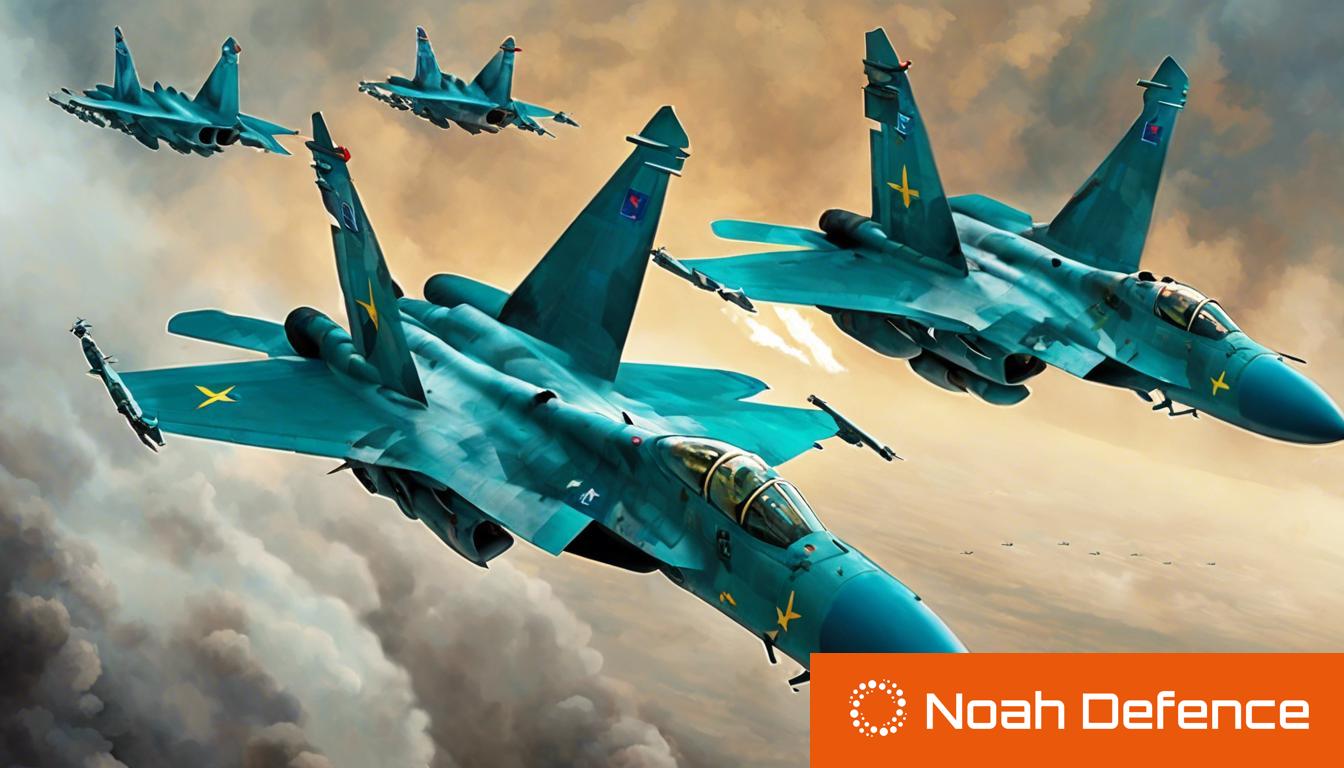Ukraine has successfully taken down three Russian Su-34 fighter-bombers amid intensified conflicts in the Avdiivka and Mariupol sectors, as Western nations extend support amidst growing concerns over regional stability.
Ukraine has reported the successful takedown of three Russian Su-34 fighter-bombers amidst ongoing conflict operations, particularly in the Avdiivka and Mariupol sectors. This achievement follows Ukraine’s military effort to repel Russian forces from the village of Orlivka, despite the persisting challenges on the eastern front. Russia continues its campaign to seize control over towns and villages in eastern Ukraine, with recent advancements in areas including Tonenke, Orlivka, Semenivka, Berdychi, and Krasnohorivka. Attacks have also intensified in the Sumy oblast, resulting in casualties and damage to settlements.
Amid these developments, Ukrainian President Vladimir Putin’s threats of nuclear engagement have been dismissed by the US as irresponsible, highlighting the escalating rhetoric between Russia and the West. In a strategic move, Ukraine has appointed Volodymyr Karpenko as the commander of its logistics forces. Upcoming discussions in Paris among European defense and foreign ministers are expected to focus on extending further support to Ukraine and its neighbor Moldova, facing its tensions due to the Transnistrian region’s appeal to Moscow for intervention against what they describe as “genocide.” Western leaders have expressed steadfast support for Moldova’s sovereignty, urging diplomatic dialogues to prevent further escalation.
These unfolding events underscore the volatile situation in Eastern Europe, with Ukraine identifying and prosecuting individuals for war crimes since the 2022 Russian invasion. Plans to export electricity highlight a strategic economic adaptation amidst reduced domestic consumption due to milder weather conditions.
Furthermore, concerns mount over Europe’s military capability and readiness, especially in scenarios where US support might dwindle. Expert analyses suggest urgent strategic planning and re-armament considerations for Europe in response to Russia’s threatening posture towards NATO involvement in the Ukraine conflict. The ongoing discourse reflects the complex interplay of military, political, and economic factors influencing the region’s stability and the broader implications for international security arrangements.













